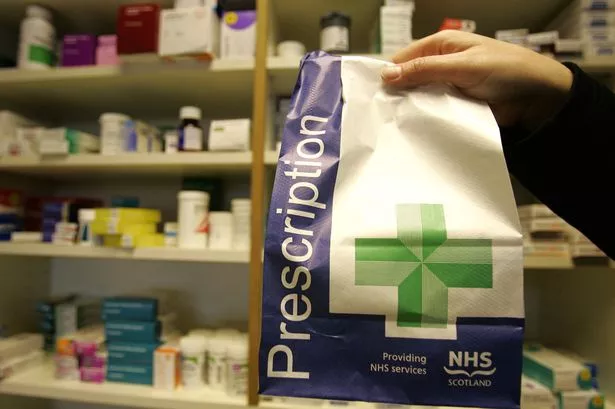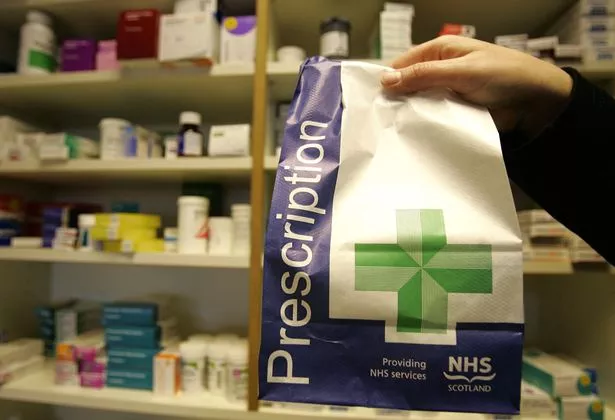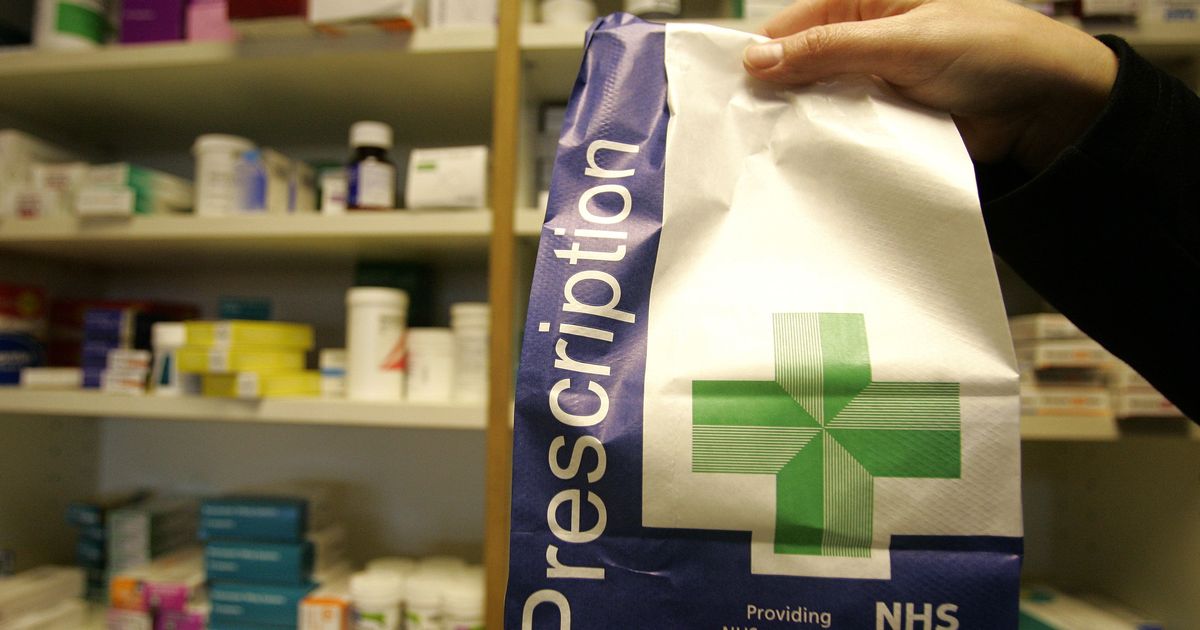Antibiotics are used to treat or prevent some types of bacterial infection A prescription being picked up at a pharmacy(Image: PA)
A prescription being picked up at a pharmacy(Image: PA)
The UK Health Security Agency has reminded people about the importance of using antibiotics correctly and to avoid using them when suffering with cold and flu. Antibiotics are used to treat or prevent some types of bacterial infection. They work by killing bacteria or preventing them from spreading. But they do not work for everything.
On Instagram, the health agency says: “Cold or flu? Antibiotics won’t help you. They fight bacteria, not viruses. Help #Keepantibioticsworking by only taking them when needed.”
A warning from the UKHSA shared with followers says: “Don’t take them [antibiotics] for colds and flu. Antibiotics don’t work for viruses like the ones that cause colds and flu.”
People have been urged to ask for advice at their local pharmacy, if they are unsure what to do when suffering from an illness that can’t be treated with antibiotics.
The health agency has warned people that common infections could become life-threatening, because our medicines no longer work. Antimicrobial resistance, known as AMR, is stopping antibiotics from being as effective as they used to be.
There were an estimated 66,730 serious antibiotic-resistant infections in 2023, a rise compared to 62,314 that we saw in 2019, before the pandemic.
AMR occurs when bacteria and other microorganisms evolve to survive the medicines we use to fight them. The UKHSA says if we “don’t act now”, by 2050, AMR could claim an additional 39 million lives globally.
In 2021 alone, AMR directly caused 1.14 million deaths worldwide. UKHAS says: “more concerning is what lies ahead – between 2025 and 2050, AMR could claim an additional 39 million lives globally.
 A prescription being picked up at a pharmacy(Image: PA)
A prescription being picked up at a pharmacy(Image: PA)
“Without effective antibiotics, routine medical procedures like hip replacements, caesarean sections, dental work and chemotherapy could become extremely risky due to the threat of untreatable infections.”
AMR costs the NHS £95 million per year. Antibiotic resistance infections are on the rise, and the health agency says it is important that the public have the knowledge to take the required steps to help reduce the spread of these infections.
The campaign highlights three simple but powerful ways people can help to keep antibiotics working:
- Don’t take antibiotics for colds and flu – they won’t help because these illnesses are caused by viruses, not bacteria
- Never save antibiotics for later use – they may not work properly and could make the problem worse
- When prescribed antibiotics, take them exactly as directed by your GP, nurse or pharmacist
The UKHSA aims to contain and control AMR by 2040. Methods to do this include developing cutting-edge surveillance and innovation to study the exact conditions found in a hospital ward without putting anyone at risk.
According to the NHS: “When it comes to antibiotics, take your doctor’s advice on whether you need them or not. Antibiotic resistance is a big problem – taking antibiotics when you do not need them can mean they will not work for you in the future.”
You should take antibiotics as directed on the packet or the patient information leaflet that comes with the medicine, or as instructed by your GP or pharmacist.
